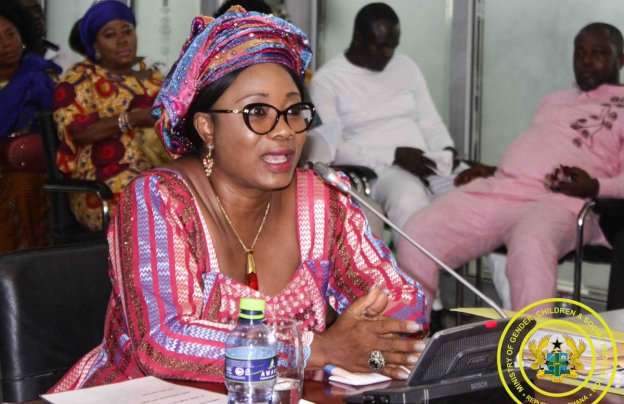 The Financial Inclusion Forum Africa is clamouring for a review of the National Pensions Act to make pension more attractive to a large section of Ghanaians, especially those in the informal sector.
The current state of the Act – National Pensions (Amendment) Act 2014, Act 883 -is said to be unfavorable to persons in the informal sector, contributing to the low patronage of pension schemes in the country.
Currently, just about 15% of the about 12 million active workforce have one form of pension scheme, leaving out a huge chunk of 85%, Mr. Samuel Bediako Waterberg, CEO of People’s Pension Trust pointed out at a Micro-Pension event put together by the Financial Inclusion Forum Africa on Wednesday.
Though the existing law makes provision for those in the informal sector, Mr Ernest Amartey-Vondee, Director of Planning Research, Monitoring and Evaluation of the National Pensions Regulatory Authority (NPRA), admits a new regulator is needed to cater for the needs of the informal sector
He noted, “If you look at the way the law is structured, even though it makes some provisions for people who are in the informal sector to contribute into pension schemes, I believe that it can be extended beyond what the law says.
“Yes it offers them the opportunity to pay regularly into pension schemes, it doesn’t consider that they have certain peculiarities that need to be recoginsed.”
The Financial Inclusion Forum Africa is clamouring for a review of the National Pensions Act to make pension more attractive to a large section of Ghanaians, especially those in the informal sector.
The current state of the Act – National Pensions (Amendment) Act 2014, Act 883 -is said to be unfavorable to persons in the informal sector, contributing to the low patronage of pension schemes in the country.
Currently, just about 15% of the about 12 million active workforce have one form of pension scheme, leaving out a huge chunk of 85%, Mr. Samuel Bediako Waterberg, CEO of People’s Pension Trust pointed out at a Micro-Pension event put together by the Financial Inclusion Forum Africa on Wednesday.
Though the existing law makes provision for those in the informal sector, Mr Ernest Amartey-Vondee, Director of Planning Research, Monitoring and Evaluation of the National Pensions Regulatory Authority (NPRA), admits a new regulator is needed to cater for the needs of the informal sector
He noted, “If you look at the way the law is structured, even though it makes some provisions for people who are in the informal sector to contribute into pension schemes, I believe that it can be extended beyond what the law says.
“Yes it offers them the opportunity to pay regularly into pension schemes, it doesn’t consider that they have certain peculiarities that need to be recoginsed.” Mr Amartey-Vondee emphasised that persons in the informal sector earn daily or weekly income, others like the cocoa farmers, it’s seasonal.
“The focus of the law has been on people who receive monthly salary, a deduction is made out of it and it is paid into a pension plan, if by the middle of the following month you haven’t paid your contribution, relative to the previous month, you are slapped with a penalty.
“This is not the case for persons in the informal sector because they don’t earn monthly income, so some of these flexibilities have to be recognised, as a way of promoting their participation in the pension scheme?”
He therefore reiterated calls for a new regulation to adequately cater for persons in the informal sector.
Mr Amartey-Vondee feared there could be “crisis” in the coming years if conscious efforts are not made to get more people to subscribe to pension schemes.
However, he announced that the pension scheme for cocoa farmers as announced in the 2018 budget is currently at the draft stage being co-financed by COCOBOD.
Earlier, Mr. Samuel Bediako Waterberg of People’s Pension Trust, urged stakeholders to come together, led by the government, to start a campaign that would encourage people to save towards their future.
He noted the challenge of always having to engage persons in the informal sector before they save, and prayed the law would be made flexible to recognise the role the telecommunications sector can play to reduce their cost of operation and boost their work.
Mr Amartey-Vondee emphasised that persons in the informal sector earn daily or weekly income, others like the cocoa farmers, it’s seasonal.
“The focus of the law has been on people who receive monthly salary, a deduction is made out of it and it is paid into a pension plan, if by the middle of the following month you haven’t paid your contribution, relative to the previous month, you are slapped with a penalty.
“This is not the case for persons in the informal sector because they don’t earn monthly income, so some of these flexibilities have to be recognised, as a way of promoting their participation in the pension scheme?”
He therefore reiterated calls for a new regulation to adequately cater for persons in the informal sector.
Mr Amartey-Vondee feared there could be “crisis” in the coming years if conscious efforts are not made to get more people to subscribe to pension schemes.
However, he announced that the pension scheme for cocoa farmers as announced in the 2018 budget is currently at the draft stage being co-financed by COCOBOD.
Earlier, Mr. Samuel Bediako Waterberg of People’s Pension Trust, urged stakeholders to come together, led by the government, to start a campaign that would encourage people to save towards their future.
He noted the challenge of always having to engage persons in the informal sector before they save, and prayed the law would be made flexible to recognise the role the telecommunications sector can play to reduce their cost of operation and boost their work. Eli Hini, General Manager, MTN Mobile Financial Services, observed that access point is a challenge for many pensioners which also makes it unattractive for many to enroll on a pension scheme.
He noted that telecommunication companies are willing to roll out products that would encourage patronage if they are recongised under the Pensions Act.
Director and Co-Founder of the Financial Inclusion Forum Africa, Frederick Asumanu noted the staggering number of persons without a pension account is worrying.
“We as a forum want to interrogate the policies around pensions. We want to bring education, openness and transparency into the space of pensions, so that it will be clear and know the way forward”.
Going forward, he said, the Forum would hold roundtable discussions latest by April this year for stakeholders on how to get more people into the micro pension space.
By Isaac Essel | 3news.com | Ghana]]>
Eli Hini, General Manager, MTN Mobile Financial Services, observed that access point is a challenge for many pensioners which also makes it unattractive for many to enroll on a pension scheme.
He noted that telecommunication companies are willing to roll out products that would encourage patronage if they are recongised under the Pensions Act.
Director and Co-Founder of the Financial Inclusion Forum Africa, Frederick Asumanu noted the staggering number of persons without a pension account is worrying.
“We as a forum want to interrogate the policies around pensions. We want to bring education, openness and transparency into the space of pensions, so that it will be clear and know the way forward”.
Going forward, he said, the Forum would hold roundtable discussions latest by April this year for stakeholders on how to get more people into the micro pension space.
By Isaac Essel | 3news.com | Ghana]]>
Pensions Act ‘favours’ only 15% of 12 million workforce, Forum urges review
Reading Time: 4 mins read
Recent Posts
- Cynthia Morrison faces jail term over contempt charges
- Survey: NPP’s Chris Arthur projected to win Agona West by landslide
- President Jerry John Rawlings – Four Years On
- Friday, November 8 not a public holiday – Interior Ministry
- Tragic: Speeding NDC vehicle kills the only child of a mother at North Dayi
- Pay NABCO trainees if you care about Ghanaian youth – Mahama tells Bawumia
- Suspend planned strike – FWSC pleads with CLOGSAG
- Some lawyers sacrifice ethics for ‘cheap’ political gains – Attorney-General
Popular Stories
-
Cynthia Morrison faces jail term over contempt charges
-
Survey: NPP’s Chris Arthur projected to win Agona West by landslide
-
Friday, November 8 not a public holiday – Interior Ministry
-
University staff declares nationwide strike
-
Agona West MP deserts NPP, promises ‘doku’ to women as she goes independent

ABOUT US
Newstitbits.com is a 21st Century journalism providing the needed independent, credible, fair and reliable alternative in comprehensive news delivering that promotes knowledge, political stability and economic prosperity.
Contact us: [email protected]
@2023 – Newstitbits.com. All Rights Reserved.











